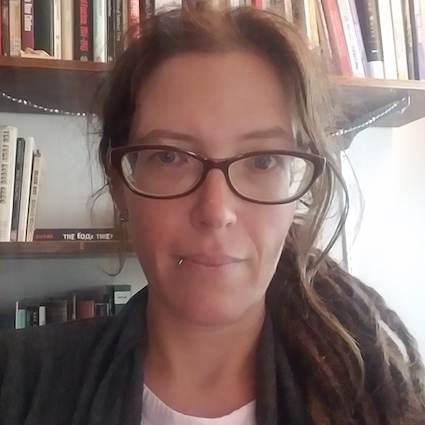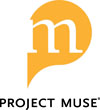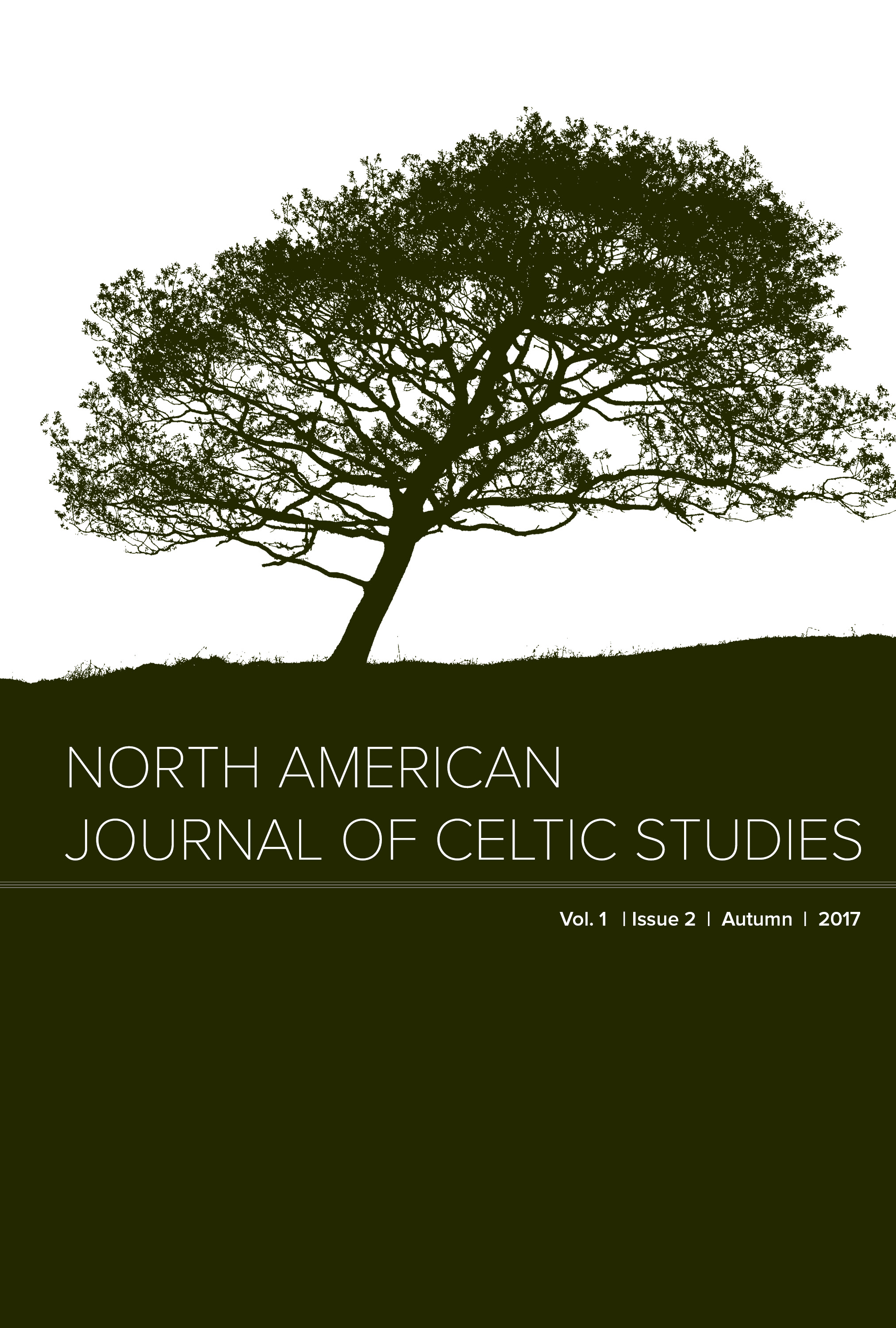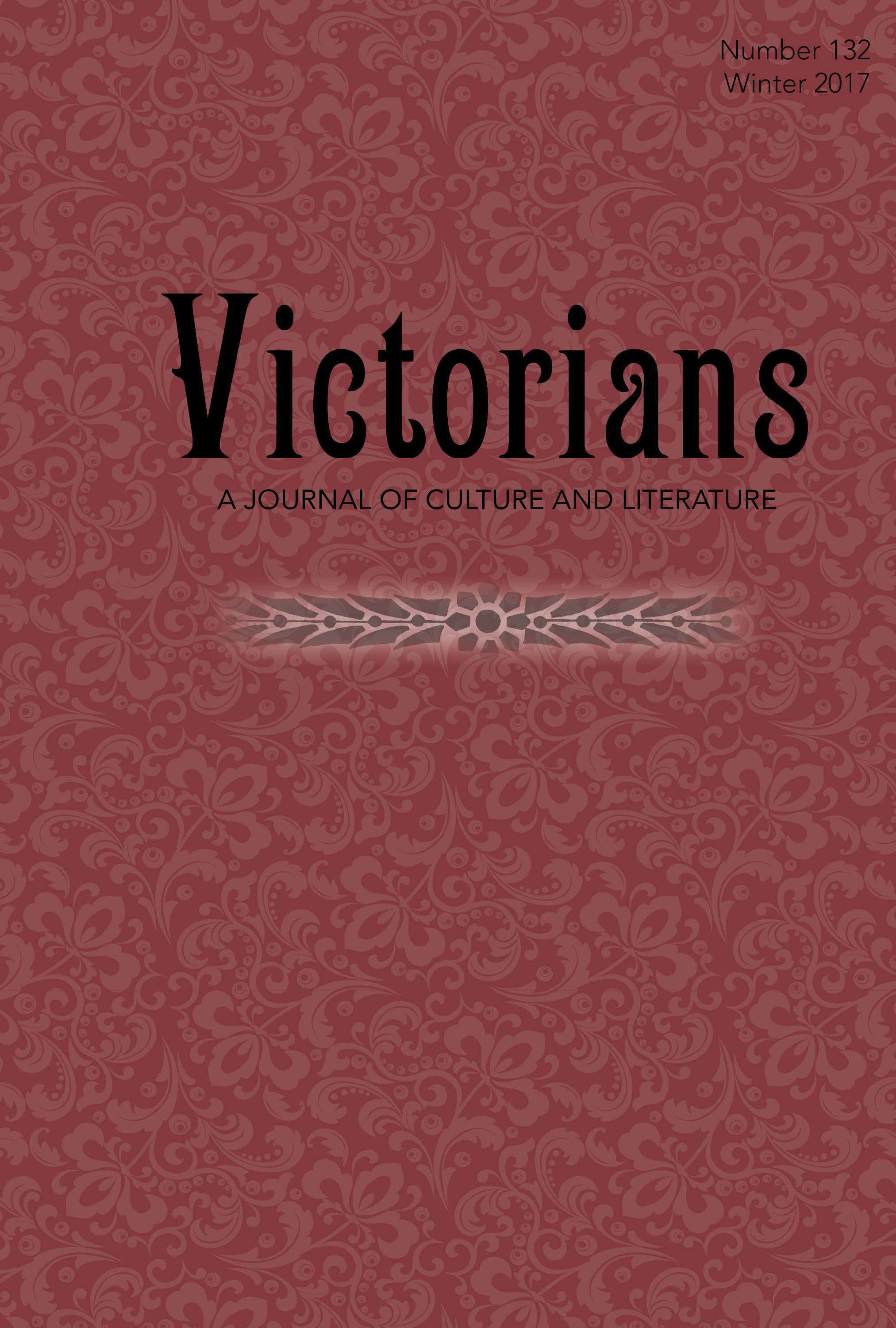Meet Our Journal Editors
To meet our editors and to learn more about each of our journals, please see the Q&A that follows. Editors discuss the sorts of articles they're seeking and the latest in their field.
Our editors:

Joe Eska, Editor
Professor of Linguistics, Department of English, Virginia Polytechnic Institute & State University
Journal: North American journal of Celtic studies
Latest publications or research projects you’re excited about:
Laryngeal Realism and the prehistory of Celtic. Transactions of the Philological Society 116, 2018, 320–331.
Laryngeal Realism and early Insular Celtic orthography. North American journal of Celtic studies 3, 2019, 1–17.
Interarticulatory timing and Celtic mutations. Journal of Celtic linguistics 21, 2020, 235–256.
Current projects:
A book on the syntax of the Continental Celtic languages.
A series of articles providing phonetic motivations for a number of Celtic sound changes.
What would you like new readers to know about the journal?: The North American journal of Celtic studies publishes articles on all fields related to Celtic studies — literature, history, linguistics and languages, folklore, art and archeology, etc. — in all time periods, ranging from the ancient world to modern times.
What sorts of articles are you looking for these days?: The North American journal of Celtic studies is interested in receiving submissions in all areas of Celtic studies, but is particularly interested in articles that employ new methods or have an interdisciplinary perspective.

Emily Hipchen, Editor
Director, Nonfiction Writing Program, Brown University
Journal: Adoption & Culture
Latest publications or research projects you’re excited about: Right now I have about six projects going, but the one I'm most engaged in is looking at the Frankenstein novel and its film franchise, using the Creature to think about the adoptee body and its liminality, originary matter, fragmentation—what the Creature (the adoptee) "is" in relation to its body. The Creature itself is of course a special kind of "adoptee" —not adopted by anyone (that's part of the problem), but a product of other people's bodies as a result of artificial reproductive technologies—so it has a delightfully skewed relationship not just to its body and its questionable individuation/individuality— even aliveness — but also to the field itself. I've finished working on an essay that addresses the Creature's brain and how questions about that organ overlap discussions of the materiality of origins for the selfhood of the adoptee. I'm working now on thinking through a question centered on why it is that the beautiful bits come together into ugliness, one that asks to what degree the fragmentation of the adoptee body via resemblance in kinning is suturing or scarifying, and thinking about where these observations might overlap the field's discussions of racial difference as producing liminal kinship.
What would you like new readers to know about the journal?: Adoption & Culture is the only journal in the field devoted to humanities approaches to adoption studies writ large and to include all nonheterocoital (a coinage of one of our contributors!) reproduction, such as IVF and other ARTs, surrogacy, embryo adoption, kinship and informal adoption, fostering, and so forth, as well as the more-traditional post-birth adoption of children. We welcome articles from all humanities fields. We've published essays in literary criticism, philosophy, law, history, political science, art, film —our focus is on representations in cultural artifacts rather than data-driven studies of human subjects. That makes us unique and I am proud of our filling that intellectual space.
What sorts of articles are you looking for these days?: We are very interested in any articles on adoption, particularly in the field of critical adoption studies, but we would love to see more work on foster care, on adoption policy in places outside the US and Canada, and that address Black and Indigenous adoption practices. We have at least one special issue CFP still circulating (check out our page at OSUP)—on adoption in film—but would love to see more of these going forward, so if you have an idea about a special issue you'd like to see, I'm all ears.
.jpg)
Deborah Logan, Editor
Professor, English, Western Kentucky University
Journal: Victorians. A Journal of Culture and Literature
Latest publications or research projects you’re excited about: Most of my research has been on Harriet Martineau (24 vols. : literary biography, letters, and edited reprints of her writing). New and recent work on colonial periodicals includes The Indian Ladies' Magazine: From Raj to Swaraj (2017) and The Life Literary, an anthology of Indian women's pre-independence writing in English (forthcoming 2021).
What would you like new readers to know about the journal?: Victorians Journal is nearing its 70th year. Established in 1952 as The Victorian Newsletter, it has an illustrious range of scholarship by many of the best-known founders of Victorian studies. For an illuminating history, see www.wku.edu/Victorian.
What sorts of articles are you looking for these days?: Victorians welcomes scholarship on the long-19th-century, with particular emphasis on the shaping influence of Victorian literature and culture on colonial and fin-de-siecle literatures, including periodicals.

James Phelan, Editor
Distinguished University Professor of English, The Ohio State University
Journal: Narrative
Latest publications or research projects you’re excited about: Debating Rhetorical Narratology: On the Synthetic, Mimetic, and Thematic Aspects of Narrative (with Matthew Clark). OSU Press, 2020. Somebody Telling Somebody Else: Toward a Rhetorical Poetics of Narrative. OSU Press, 2017; "Assessing Nonfiction Narratives in Contest: The Rhetoric of Devin Nunes" .
What would you like new readers to know about the journal?: It's the official journal of the International Society for the Study of Narrative; it publishes essays about all kinds of narrative that conduct inquiries into both narrative theory and the interpretation of individual narratives. We will be doing special issues in 2021 and 2022 on "Narrative in the Public Sphere" and "Character," respectively.
What sorts of articles are you looking for these days?: I'm interested in essays that challenge received wisdom. Essays on race and narrative theory especially welcome.

Sarah Salter, Editor
Assistant Professor of English, Texas A&M University-Corpus Christi
Journal: American Periodicals
Latest publications or research projects you’re excited about: At the journal, our "In the Archives" feature has been undergoing an expansion of sorts. Although conceived as a place to explore and celebrate strange and interesting finds in the periodicals archive, the feature has lately been attracting exciting ruminations from studies of midcentury prison printing presses to explorations of how digitization affects our sense of authorship. We also have been publishing some really fabulous work in our "Forum" feature. Authors can find more information about our "In the Archives" and "Forum" features on our homepage.
In my own writing life, I write alone and in collaboration about the history of editorship in 19th-century multi-ethnic newspapers. I recently completed a long archival project exploring the history of the first Italian-language newspaper in the United States, a New Orleans paper with a very opinionated editor. I was honored to have the essay version of this work published this summer (MELUS 45.2). Since no archival project is ever really finished, I am looking forward to continuing my work with "Editorial Ethnicities" across regions, languages, and decades and to continuing my exciting and productive collaborations with other brilliant periodical scholars.
What would you like new readers to know about the journal?: As the expansion of print culture studies continues, American Periodicals remains the foremost journal in the field for the interdisciplinary variety and innovation that characterize US periodical studies as a scholarly field. Readers will find in the journal a broad range of approaches, objects, and methodological interventions: in our Fall 2020 issue (30.2) readers will find intellectual/professional biography, studies of underground 'zine culture and mainstream teen publication, and a robust forum on the archive of multi-ethnic editorial practices in newspapers from Hawai'i to rural Ohio to New York City. And that's just one issue! We are excited to remind or introduce readers to the expansive and generous world of periodical scholarship that they will find in our current pages and back issues.
What sorts of articles are you looking for these days?: One of our important current goals for the journal is to continue expanding the scope of what we consider "American" and what we consider "periodicals" through the scholarship we publish. We are always looking for scholarship that highlights the complexity and density of US culture through focus on periodicals, and especially welcome work on the Black press, multilingual print cultures, and hemispheric circulations and publications. We also encourage writers to consider using the "In the Archive" feature to highlight digital projects related to periodical cultures, and to think big about how our longer "Forum" feature encourages a range of voices, approaches, and examples focused around a single theme or idea. In addition to the most recent multi-ethnic editorship forum, recent forums include a bravura exploration of "The Metaphors We Use" in periodical studies (30.1) and an archival deep dive into the 20thC Anarchist Press (29.1). Our editorial collective is always delighted to hear from potential authors or answer any queries at americanperiodicals@gmail.com.
.jpg)
Qiana Whitted, Editor
Professor of English and African American Studies, University of South Carolina
Journal: Inks: The Journal of the Comics Studies Society
Latest publications or research projects you’re excited about: My latest book is EC Comics: Race, Shock, and Social Protest (Rutgers UP) and recently I published a short piece on the graphic novel Angola Janga: Kingdom of Runaway Slaves for ASAP/J online. Currently I am editing an essay collection on race in Golden Age comics.
What would you like new readers to know about the journal?: Inks features refereed essays, book reviews, interviews, and archival materials on the study of comics (which includes any form of sequential art, graphic narrative, and cartooning). Our editorial team is especially proud of the different disciplinary approaches and methods that the contributors bring to their research, including for example: the ethics of Roz Chast’s graphic memoir about aging and death; psychoanalytic readings of Batman’s greatest nemesis; the philosophy of race in DC’s Deathlok; and queer theory and fan studies on the series ElfQuest. As the official journal of the Comics Studies Society, we take seriously our role in advancing the scholarly conversations that are happening in the U.S. and abroad about comics narratives. This year Inks was also nominated for a Will Eisner Comics Industry Award for Best Comics-Related Periodical.
What sorts of articles are you looking for these days?: We are always interested in compelling readings of comics that are attentive to both the verbal and visual dimensions, taking matters of aesthetics and design into account when discussing content. In fact, I would like to see more pieces in Inks that explore the comics form and consider all the elements that make this storytelling medium so pliable, so engaging, and so distinctive. And while our editors welcome essays about well-known titles such as Maus, Fun Home, or Black Panther, it is crucial that the arguments demonstrate a strong awareness of previously published scholarship about these comics in order to be successful in the peer review process. We are also eager to continue building the journal’s “From the Field” section, which showcases commentary, interviews, and forums from comics studies scholars and creative professionals. I would love to see this section of Inks publish more illustrated essays and visual annotations of comics as well.
Our journals program welcomes submissions to our award-winning journals, which are closely related to many of our books program’s major subject areas. Subscription information, submission guidelines, editorial contacts, and other resources are available on each journal’s webpage. Current content for the journals can be found on Project MUSE. For further information, contact Emily Taylor, Journals Manager, at taylor.2070@osu.edu.




_Cover.jpg)
_Cover.jpg)
_cover.jpg)

